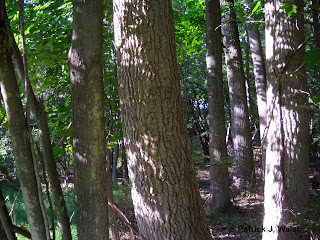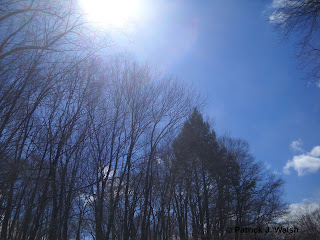Tentative, faint; echoing
in the sweetness of the memories they invoke and aching in the evanescent
traces of the comfort they promise, the sounds of summer are in the park these
days.
This is the first of Spring,
in its early bloom, when the weather routinely betrays the best impulses of the
seasons.
Surfaced from memory, whispers of bright, gentle mornings and soft afternoons tug at my tired soul, and I pull my jacket close against the coolness of the day.
As I set out, the weak,
scattered sunlight shares only a hollow warmth. Farther along, I wander beneath
clouds heavy with rain, and crosswinds jostle at my arms and legs, indifferent
to my progress.
In the open area near the
lake, the sputtering folds of wind recall the "hup-hup-hup" of a little boy
approximating a primitive flute by blowing across the neck of an open soda
bottle.
On the far side of the
water, in the chill darkness beneath the cover of the canopy of trees, the
cicadas are fooled into an early burst of song.
Their staccato melody
echoes across the windy surface of the lake like an invocation, bringing golden
remembrance of the hushed tones of quiet exchanges in the twilight of warm days
past.
There is not yet the
flutter of leaves on branches touched by the tiny limbs of birds; nor is there
the bright splash of a fish struggling down the stream toward the lake; nor the
hum of insects flashing along the trail at the edge of the paved road.
But there are the sounds
of ancient campfires: the pop and hiss of burning twigs, their tiny flames
nurtured by the coaxing breath of some long ago mother or father, while the
squeals of delighted children echo nearby.
And with my eyes gently
closed, paused in my forward progress by some intimation of welcome, I hear the
murmur of the woods calling out through the sultry stillness of a summer night,
and the wordless yearning of a wish made in silence at the sight of a star
falling from the summer sky.
In the park, on a chilly
day in Spring, the cicadas hum, and in the breath of the wind, I hear the
sounds of summer.
© Patrick J. Walsh






